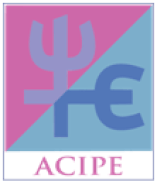
Victoria Hidalgo
University of Sevilla, Spain
Incorporation of evidence-based best practices in family care and support programs and resources.
Participants: Isabel López Verdugo; Mª Angels Balsells; Silvia López Larrosa; José Sánchez Hidalgo.
Both the legislative framework and current theoretical approaches highlight the need to implement actions to support families in the exercise of their parental functions and to guarantee child welfare. For this reason, family support actions have increased and evolved a lot in the last decades, being many sectors and public administrations in our country that currently have child and family services that include family support actions from the Positive Parenting approach and promoting the welfare of children and adolescents. These actions are very varied and differ, fundamentally, depending on the level of prevention, the addressees, the modality of intervention and the sectors or entities responsible for their implementation. Only in some cases are these interventions carried out through systematized and empirically validated programs. In this sense, although the increase in these resources is a significant advance, the current challenge is to ensure that the actions implemented incorporate evidence-based practices and programs that meet quality standards in the design, implementation and evaluation phases of the interventions. Within this framework, the papers in this symposium present four experiences developed in Spain that show the incorporation of good evidence-based practices in family care and support programs and resources.
Professor of Developmental and Educational Psychology, she has been coordinator of the Official Master's Degree in Mediation and Family Intervention at the University of Seville and teaches in 3 other official master's degrees, as well as in the PhD program of the Faculty of Psychology. Her research career has been focused on the field of family intervention, specifically in the design, implementation and evaluation of training and support programs for families from the approach of positive parenting. For more than a decade she has been leading a research group specialized and referent in the study and intervention in family contexts at psychosocial risk. His research activity has been characterized by its applied nature and by being especially focused on the transfer of knowledge with high social impact. In the field of knowledge transfer, her activity has focused on institutional counseling and training of professionals. She is a founding member and President of the Association for the Study and Support of Families (ESAFAM) and is a member since its inception of the Expert Group on Positive Parenting that advises the Ministry of Health, Consumer Affairs and Social Welfare and the Spanish Federation of Municipalities and Provinces.





